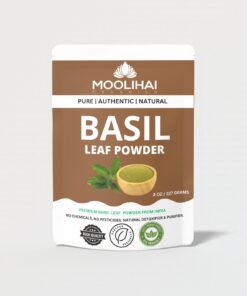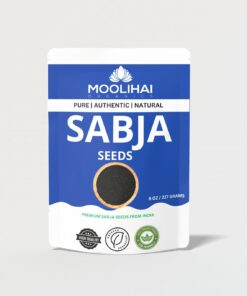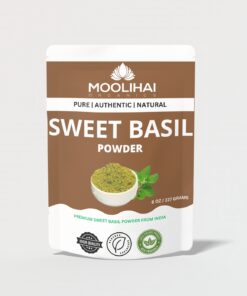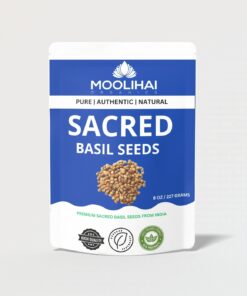Info
Sabja (basil) Seeds Health Benefits, Nutritional Facts, and Side Effects

What Are Sabja Seeds?
Basil seeds or sabja seeds are not only used for growing basil plants; you can eat them.
They are similar to sesame seeds, but they are black in color. The type of sweet basil you usually eat comes from Ocimum basilicum, a plant commonly used for seasonal foods.
Due to this reason, the seeds are commonly known as sweet basil seeds. They are also called in many names, including sabja and tukmaria seeds.
In Ayurveda and Chinese medicine, the sabja seed has an essential place. Here are 12 exciting benefits and uses of sabja seeds.
Ayurvedic Properties of Sabja Seeds
| Taste (Rasa) | : Sweet (Madhura) |
| Quality (Guna) | : Unctuous (Snigadh) or Oily (Sneha) |
| Potency (Virya) | : Cool (Sheeta) |
| Taste after digestion (Vipaka) | : Sweet (Madhura) |
| Effects on dosha | : Pacifies Vata Dosha And Pitta Dosha and increases Kapha Dosha |
12 Health Benefits of Sabja Seed
Ayurvedic and Chinese medicine widely use the sabja seeds and have many health benefits that you may not be aware of.
1. Helps to Reduce Weight
Generally, basil seeds are high in alpha-linolenic acid (ALA) that comes from high levels of Omega-3 fatty acids. They help to burn the metabolism in your body. The seeds come full of fiber that maintains your stomach full for a long time, stops unnecessary cravings, and aids in weight loss.
To control appetite, consume the sabja seeds with a bowl of yogurt or sprinkle the seed on to the fruit salad. It creates a fermentation environment. Weight loss will be followed by fatigue and constant tiredness.
Also Read: Herbs for Weight Loss
2. Natural Body Coolant
Drinking sabja seeds with warm water can give relief from the scorching heat, especially in summer. We all know that the sabja seeds are famous for making the body coolant. That’s why people frequently add them to refreshing drinks such as lemonade, sherbet, or milkshakes.
It decreases the temperature of your body and gives a calming impact on your stomach. You can consume these seeds as a part of coconut water, smoothies, lemonades, milkshakes, coconut milk, and yogurt, etc.
Sabja seeds are used together with honey, water, sugar, and even coconut milk in Asian countries. It is an excellent drink to overcome the intense summer heat. Sabja seeds are one of the best body conditioners.
They come with natural cooling properties that make them highly desirable during peak summers. Consuming these seeds with milk or water can reduce body heat as well as give adequate hydration from the inside.
3. Decreases the Blood Sugar Levels
Sabja seeds have been shown to have excellent anti-diabetic properties, and also they are rich in fiber.
Sabja seeds are one of the best traditional treatments for type 2 diabetics, which balances blood sugar levels. The seeds reduce the metabolism level of your body, leading to the control of the carbohydrate’s conversion into glucose.
Having a cup of milk with soaked basil seeds for breakfast reduces the blood sugar level. It is one of the healthiest drinks and is a great alternative to beverages like tea and coffee.
Take 3/4 tsp of sabja seeds and add them in water. Drink it after every meal for up to one month. You will get a better result.
Also Read: Herbs for diabetics
4. Cures Constipation, and Bloating
Sabja seeds naturally detoxify your body and improve bowel movements. Take a cup of milk with some sabja seed before you sleep for up to one month. It works well into your stomach. Since they have volatile oils, this helps to decrease the gastrointestinal tract and support the digestive system.
Generally, the basil seeds are high in soluble fiber, so adding them in your food can give more health benefits. By adding subja as a part of your daily food you can get rid of Constipation and bloating.
These seeds have pectin in many soluble fibers. Pectin has been shown to have prebiotic benefits. It is essential to alter the composition and metabolism of complex intestinal microbiota, thereby improving the numerous good bacteria in the gut. It helps to reduce the acidity greatly.
Also Read: Best herbs for constipation
5. Helps to Reduces Acidity and Heartburn
Sabja seeds give relief from heartburn, and its diuretic functions help eliminate the toxins from your body. They balance the HCL acidic effect on your body and provide relief. Sabja seeds are soaked in water, helping soothe the stomach lining, thus eliminating the burning feeling.
6. Benefit for Hair and Skin
One of the best benefits of sabja seeds is good for hair and skin infections. Its antimicrobial and antioxidant properties are beneficial for your skin and hair. If you are affected by eczema and psoriasis type skin diseases, then apply the coconut oil with smashed Sabja seeds directly on affected areas.
Without soaking the seeds, crush them, in a cup of coconut oil and heat for a few minutes before using it. Consuming sabja seeds daily helps create collagen, which is needed to build new skin cells when damaged due to normal skin and tears.
Also Read: Best Herbs for Skin
Generally, sabja seeds contain vitamin K, iron, and protein necessary for your hair growth. In addition, they can decrease the hair fall and improve the volume of your hair. Moreover, sabja seed oil gives the solution for dandruff. Take sabja seed powder with your usual oil then mix and massage your scalp. Ideal it for one night, you can get silky and beautiful hair after washing with water.
Also Read: Herbs for Hair Growth and Thickness
7. Remedies Cough and Flu
As it has antispasmodic properties, the seeds can soothe tension in the spasmodic tissues and help to relax them. In this way, the sabja seeds help to control whooping cough and also supports the immunity level. Flavonoids such as orientin, viscin, and beta carotene strengthen the defense system of the body.
Sabja seeds are high in minerals that are helping to keep your body cool and healthy. Moreover, the seeds have come with nutrients and many health benefits.
8. Good Powerhouse of Minerals
As per the U .S. product nutrition labels, 1 tsp of sabja seeds contains 10% of the RDI for magnesium and iron, 15% of the Reference Daily Intake (RDI) for calcium.
Magnesium and calcium are the most necessary minerals to improve muscle function, bone health, and iron is essential to maintain hemoglobin levels and red blood cell generation.
Most people don’t like to eat calcium and magnesium foods like milk, cheese, pumpkin seeds, and other dairy foods, but they need these minerals. Sabja seeds are the best alternative for these foods that helps you to get more nutrients.
9. Reduce the Risk of Heart Diseases:
One tablespoon of Sabja seeds contains an average of 2.5 grams of fat. Of this fat, it contains 1,240 mg – alpha-linolenic acid (ALA), omega-3 fat.
Omega-3 fatty acids have some beneficial effects that are blood pressure, coagulation, cardiovascular function, lipids, eosinophils, and immune responses. They help to reduce the risk of high blood pressure, coronary heart disease, and stroke and its complications.
ALA has no RDI, but women and men are considered to have an adequate intake of 1,100 mg or 1,600 mg of this essential fatty acid, respectively. Therefore, a tablespoon of basil seeds can meet most – or even all – of your daily needs for ALA.
Your body mainly uses ALA to generate energy. Its anti-inflammatory properties benefit and decrease the risk of heart disease and type 2 diabetes.
10. Benefit for Oral Health
Sabja seeds have been shown to have antifungal, antiviral, and antibacterial properties. Hence they are helpful to cure mouth ulcers. You can use them as a mouth freshener. These seeds help fight against several dental problems such as odor, plaque, and cavities.
11. Decrease Cholesterol Level
Peptin, a type of soluble fiber found in sabja seeds, can reduce a higher amount of fat in our body. It stops the fat absorption in your gut.
Also Read: Natural Herbs To Lower Cholesterol
12. Decreases Stress & Anxiety:
Sabja seeds give a calming effect to your body and mind. They help to decrease stress, anxiety, and tension and make you feel happy.
Sabja seeds contain terpenoids, flavonoids, and tannins. Moreover, its antioxidant properties have also been shown to have memory-enhancing effects in some people.
Also Read: An Ayurvedic Guide to Stress Management
Sabja Seed Recipe
Sabja seeds offer a lot of health benefits. But soaking them in water and consuming them may prove to be boring. To make these seeds interesting, try out some of the recipes below.
1. A twist on the Lemonade

Ingredients:
- Lemon juice of 1 lemon
- Strawberry syrup – 3 tsp
- Sabja seeds – 2 tsp
- Mint leaves – 4 or 5
- Chilled water – 2 glass (ice cubes optional)
- Fat-free sour cream – 1 cup
- Salt – 1/4 tsp
Recipe Description:
- Soak the sabja seed into the water for up to 15 minutes.
- Filter the excess water
- Take the jar, fill chilled water, strawberry syrup, and lemon juice. Mix them well.
- After that, add the sabja seed and mix it well.
- Change to the chilled glass, put some mint leaves and salt.
- If you want more chillness, you can also add ice cubes.
- Instead of strawberry syrup, you can add rose syrup or other flavors and fruit-flavored drinks.
Not only does sabja seed with coconut water taste great, but it is also a great way to cool your body in summer.
2. Sabja seeds porridge with mixed fruits

Ingredients:
- Cinnamon 1/4 tsp
- Bananas 2 (sliced)
- Sabja seeds – 2 tsp
- Dates 2 (pitted)
- Mixed fruits 2 cups (chopped and your preferable fruits)
- Unsweetened almond milk – 400 ml
- Salt – 1/4 tsp
Recipe Description:
- Soak the sabja seeds into the water for 15 minutes then filter the extra water.
- Take the blender, add the unsweetened almond milk, banana, cinnamon, dates, and salt. Blend them like a thick paste.
- Add the sabja seeds into them and beat them
- Ideal for them for up to 10 minutes
- Take the clean bowl and transfer them.
- Sprinkle the fruit piece on the top.
Chia Seeds and Sabja Seeds
Many people confuse sabja seeds and chia seeds. There are some notable differences between chia and sabja seeds.
In color, Sabja seeds come with jet black and chia seeds are a mixture of black, white, and gray.
In shape, Sabja seeds are elliptical and chia seeds are oval.
Chia seeds can be made raw or soaked, and sabja seeds can be eaten only after soaking.
The most critical nutritional differences are that chia seeds are twice as rich in omega-3 fats, but have slightly less fiber compared to basil seeds.
However, basil seeds swell faster and larger than chia seeds.
Both seeds have a mild flavor so that they can be used in a variety of recipes such as smoothies and baked goods, etc.
Buy Chia Seeds HereHow to Eat Sabja Seeds
Basil seeds are very nutritious when soaked in water.
The seeds start to grow when the water is touched, each black seed is coated with a translucent white film, and they double in size.
Take one cup of warm water, then add two tsp of basil seeds and soak them for up to 15 minutes. Hot water completely inflames the seeds with antioxidants and useful digestive enzymes.
Sabja seeds offer plenty of benefits. These seeds don’t have any specific taste and can be added to different foods for nutritional stimulation. Sabja seeds are the best for garnishing in the drink and desserts.
Mixed in lemon or sprinkled on the kulfi they give their own fresh and grassy touch. You can eat it everyday, it is the best alternative for snacks.
Adding sabja seeds in ice creams, soups or pasta gives a vibrant feel. You can also add these seeds in coconut water, buttermilk, milkshakes, smoothies, etc.
Nutritional Facts of Sabja Seed
Here is the data that 100 grams of sabja seeds contain the following
| Nutrient | Value |
|---|---|
| Calories | 27 |
| Total Fat | 0.61 gm |
| Sodium | 4 mg |
| Carbohydrates | 4.34 gm |
| Sugar | 0.3 gm |
| Dietary Fiber | 3.9 gm |
| Vitamin C | 18.0 mg |
| Iron | 3.17 mg |
| Calcium | 38% |
Side Effects and precautions while using Sabja
- The daily recommended dosage of sabja seeds should not exceed a tablespoon because overdosage may cause specific side effects. In some people, Sabja seeds may cause diarrhea, vomiting, acne, acid reflux, headache, abdomen discomfort, loss of appetite.
- It is advisable that diabetic patients should avoid Sabja seeds with other medications because it will lower blood sugar levels.
- These seeds are not preferred to people who suffer from improper digestion because they will increase AMA.
- It may lead to loss of appetite with its appetite-suppressing properties, and it is too heavy to digest.
- Long-term usage may cause harmful effects in obese people.
- It will reduce estrogen levels, so it is not recommended for pregnant ladies.
- It is not recommended for a patient who had surgery or bleeding wounds, because it will slow down the blood clot.
The Bottom Line
Sabja seeds are rich in fiber, a good source of minerals, high in plant-based omega-3 fats, and rich in beneficial plant compounds. After soaking the seeds in water, you can eat them. In India and Southeast Asia, the sabja seeds beverages are very famous, and now it is popular in the United States.
Sabja seeds are known for the benefits that add value to your life. They are used to maintain your skin and hair healthy and provide many health benefits necessary for a healthy life. Recently, sabja seeds have become popular for weight loss. Although sabja seeds have a lot of nutritional benefits, it should be noted that you should consult an experienced doctor before adding them to your food.






Ponnatharam Stone (Raw) | For Permanent Hair Removal
Vengai Paal | Black Bindi | Dhrishti Pottu | Vengai Pottu for Babies | 100% Natural
Original Edible Camphor | Pacha Karpooram | Bhimseni Camphor
Dried Avaram Senna Flower / Cassia Senna Auriculata / Aavaram Poo / Tarwar / Amaltas Leaves / Senna Auriculata / Avaram Poo / Sanay / Alexandrina / Tanner’s Cassia flower
Natural Dried Moringa Flower – Moringa Oleifera – Drumstick Tree Flower – Murungai Poo – Munagaku Flower
Akasa Garudan Kilangu / Redfruit Creeper / Corallocarpus Epigaeus
Pure Ponnatharam Powder For Hair Removal
Insulin Leaf Powder / Chamaecostus Cuspidatus / Costus Pictus / Spiral Ginger / Insulin Powder / Costus Igneus
Saussurea Obvallata Seeds / Brahmakamal Seeds / Queen of the night / Sacred Saussurea Kon Kapfu / Brahma Kamalam / Nishagandha
Achu Pottu for Babies | Bindi Mould Set | Baby Seratta – 1 Set
Kaunch Beej Powder |Poonaikali | Velvet Bean Powder | Mucuna Pruriens | Kapikacchu | Natural Nervine Tonic & Muscle Builder
Aalam Pazham / Banyan Fruit Powder / Ficus Benghalensis / Marri Palu / Bargad / Dodda Alada Mara / Peraal / Vat Vriksha Powder